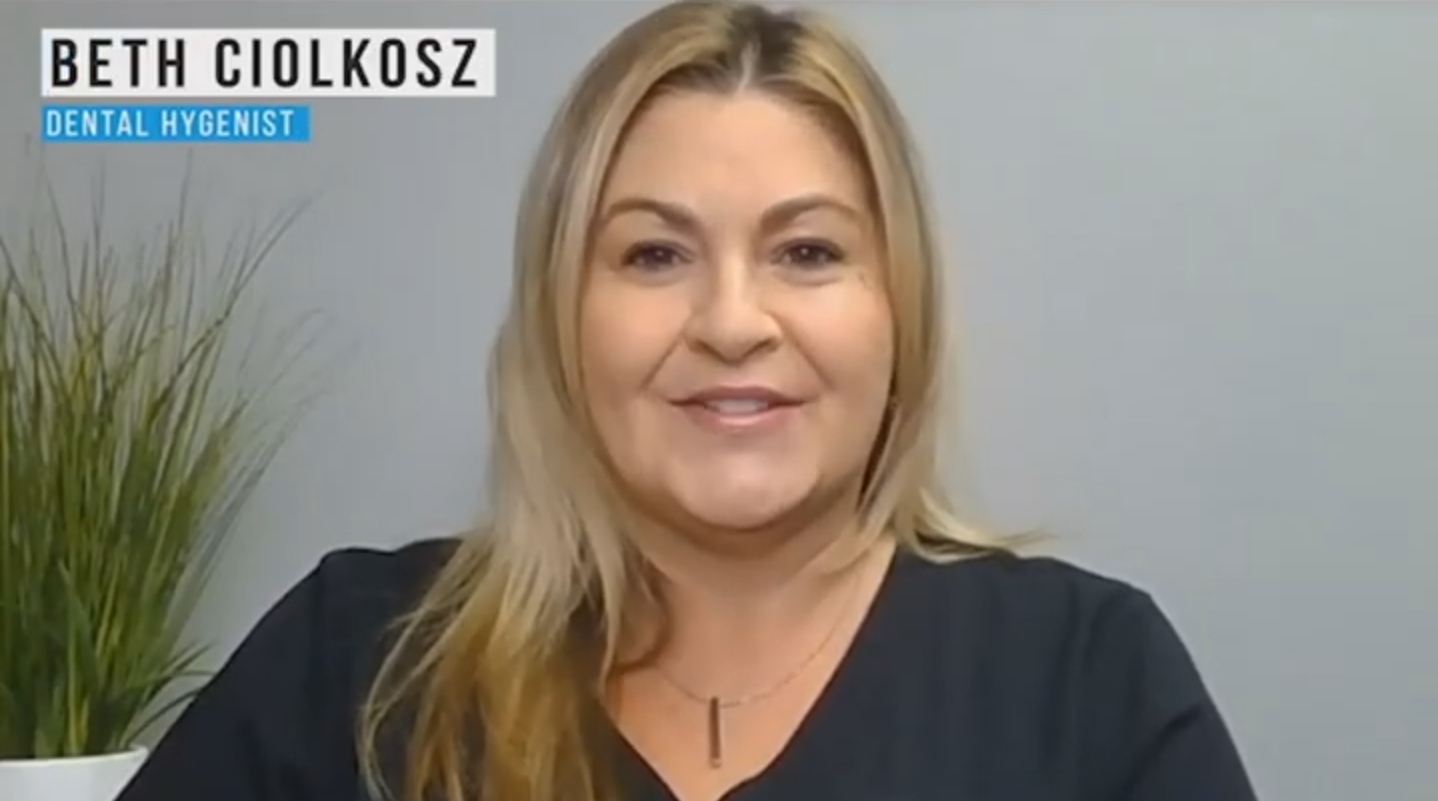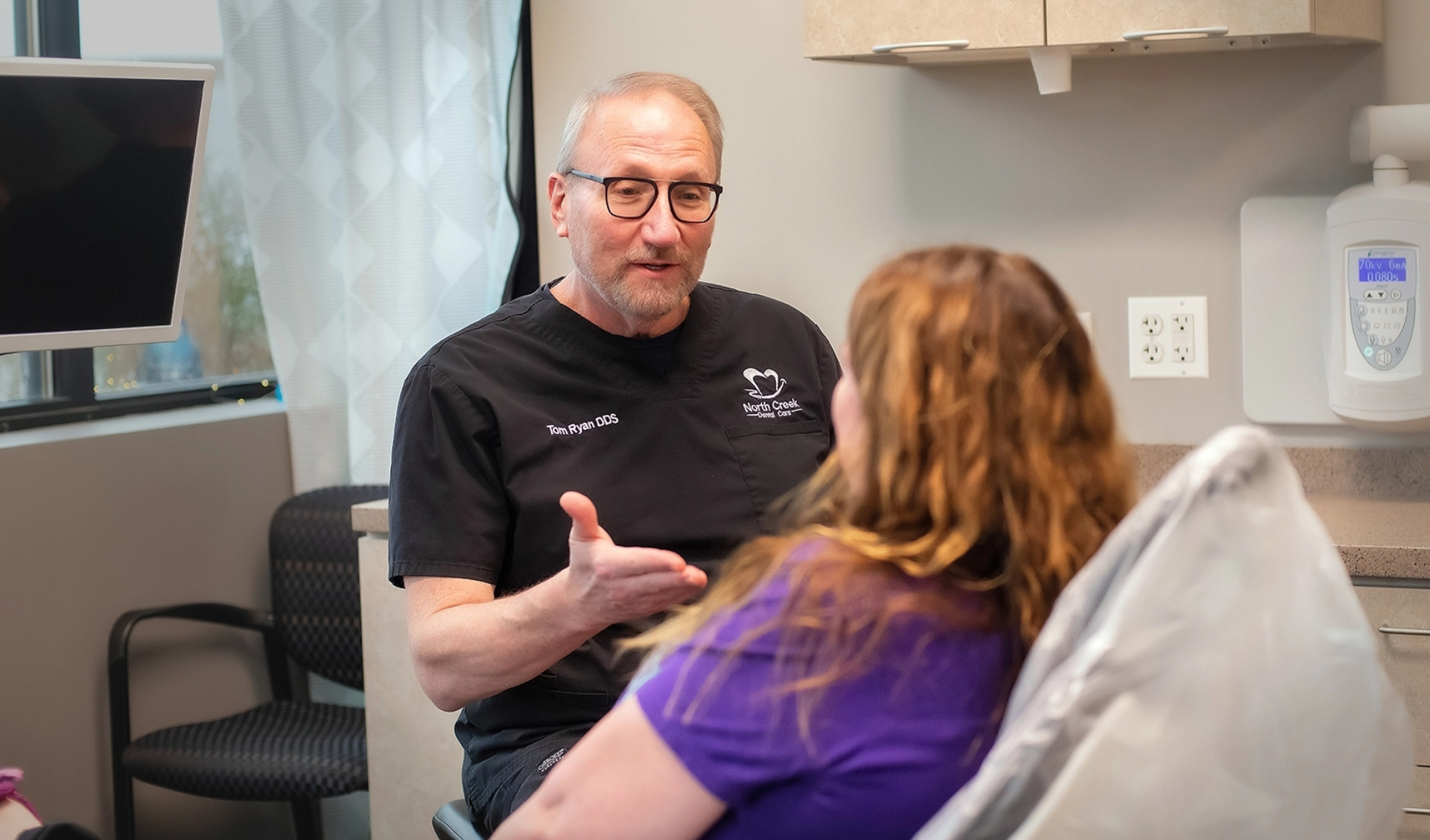Gum Disease Treatment in Tinley Park, IL
Maintaining or Renewing a Healthy Smile

The Main Reason for Lost Teeth
People often assume that tooth loss is due to decay. It’s not. It’s the result of periodontitis, a severe form of gum disease. And it might be completely unnoticeable right up until you have lost teeth. Symptoms include bleeding gums when brushing or flossing and loose or shifting teeth. Gums that bleed easily can be an early warning sign. If you’ve been advised to get gum surgery, you will be glad to know that it’s possible to control gum disease with a variety of non-surgical treatment options.
Gum Disease and the Connection to Heart Disease and Even Stroke
Recent medical research has led many doctors to reach a shocking conclusion: periodontitis, stroke, and heart disease are linked. Because heart disease is usually fatal, it is clear that gum disease is a very serious matter. The American Dental Association has estimated 8 out of 10 Americans have periodontal (gum) disease. If this were some other affliction, such as AIDS or tuberculosis, it would be considered of epidemic proportions. Many dentists think it is just that. They also knew gum disease wouldn’t be labeled epidemic because “no one ever dies from it.” The worst-case scenario is that you lose teeth. Not pleasant – but certainly not life threatening. However, that has all changed.
The American Academy of Periodontology states that “Studies found periodontal infection may contribute to the development of heart disease, increase the risk of premature, underweight births, and pose a serious threat to people whose overall health is already compromised due to diabetes and respiratory diseases.” Periodontal disease is characterized by bacterial infection of the tissues surrounding the teeth. These bacteria can move through the bloodstream – directly to the heart.


For Some Good News
With advanced gum disease, the treatment is generally surgical. Dr. Ryan is trained to use the FDA-approved PerioLase™ laser for treatment without scalpels or sutures. With mild periodontal disease, there are effective non-surgical procedures that, coupled with improved dental hygiene, can halt the spread of the disease. A professional cleaning can play a crucial role in maintaining healthier gums by removing bacteria and plaque buildup below the gum line, especially in areas where flossing can’t reach. Both treatments may be covered under your dental insurance plan.
What’s So Bad About Losing a Tooth?
Is it a big problem to lose a tooth? I mean nobody dies from it, right? Right, but losing even one tooth can cause the adjacent teeth to shift and move – not good. This can impact chewing and the ability to absorb proper nutrition from food. Other bad things can happen. Your face will change shape, combining with bone loss over time to give a “sunken” look. This can make you appear older than you really are. The way you talk can be affected. Because it’s harder to chew with missing teeth, you may lean toward softer foods and more carbohydrates, which can result in weight gain. The best method to treat a missing tooth (or missing teeth) is with dental implants. An implant can replace one tooth or several. They can be constructed to look so natural that even dentists have to look hard to see the difference.
We can help arrest your gum disease and bring your smile back to health. Cleaning the root surfaces and reducing deep pockets may also support the healing of affected tissues and reduce bacterial load.

Frequently Asked Questions about Gum Disease Treatment, Tinley Park, IL
What are the early signs of gum disease and why is immediate treatment important?
Early signs of gum disease include red, swollen, or bleeding gums, especially during brushing or flossing. These symptoms may seem minor but can progress into chronic periodontitis if left untreated. Immediate treatment is crucial to prevent gum recession, damage to gum tissue, and potential tooth loss. Seeking gum disease treatment in Tinley Park early helps stop the progression and supports the health of your entire mouth. Non-surgical options like root planing can be highly effective in early stages.
How does periodontal treatment impact overall health?
Periodontal treatment not only helps treat gum disease but may also lower the risk of serious health conditions like heart disease, stroke, and diabetes complications. Gum disease allows bacteria to enter the bloodstream, affecting major organs. Treating infections in gum tissue improves oral health and may contribute to better overall wellness. For patients in Tinley Park, receiving timely periodontal treatment can lead to significant health benefits beyond the mouth.
Can dental implants help after tooth loss due to gum disease?
Yes, dental implants are a highly effective solution for tooth loss caused by chronic periodontitis. When gum tissue and bone are damaged from advanced gum disease, implants can restore both function and appearance. They prevent surrounding teeth from shifting and preserve facial structure. After undergoing gum disease treatment in Tinley Park, implants can offer a permanent way to rebuild your smile and confidence while supporting long-term oral health.
What is root planing and how does it help treat gum disease?
Root planing is a deep-cleaning procedure used to treat gum disease by removing plaque and tartar from below the gum line. It smooths the tooth root to help gum tissue reattach and heal properly. This non-surgical periodontal treatment is effective for managing gingivitis and early stages of chronic periodontitis. Patients in Tinley Park often receive root planing as part of their personalized gum disease treatment plan to stop progression and encourage recovery.
What are the risks of untreated gingivitis?
Untreated gingivitis can progress into chronic periodontitis, leading to gum recession, bone loss, and even tooth loss. Inflammation and infection in the gum tissue become harder to reverse over time. Immediate treatment is essential to preserve your smile and avoid more invasive procedures. Seeking gum disease treatment in Tinley Park early allows for simple, often non-surgical solutions that can restore your gums and help you maintain overall oral health.